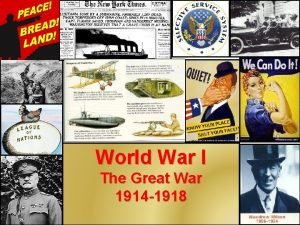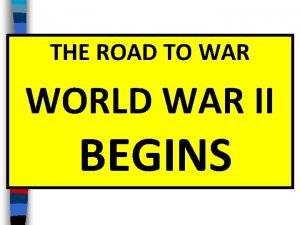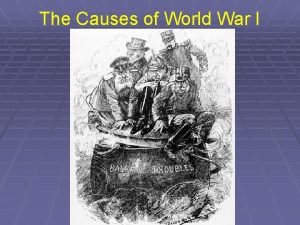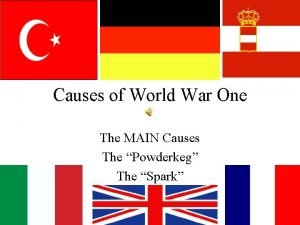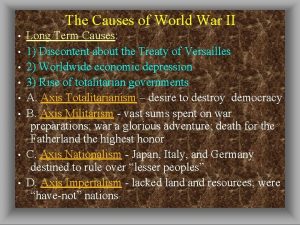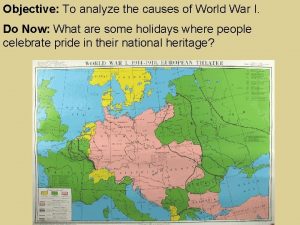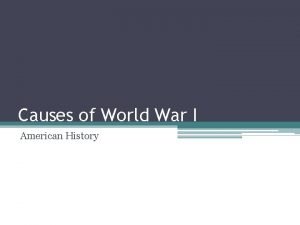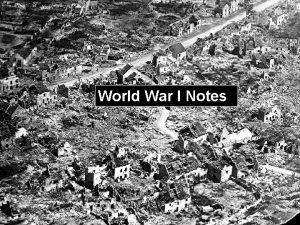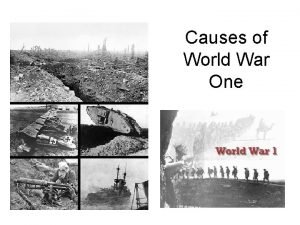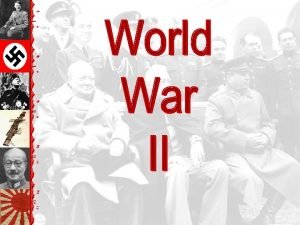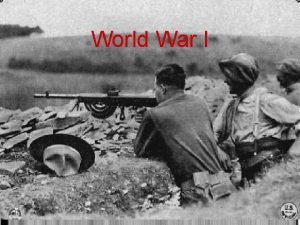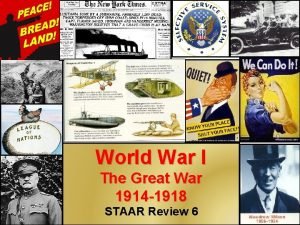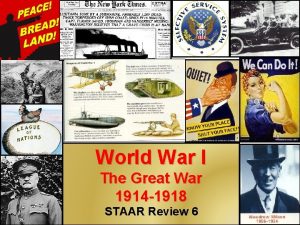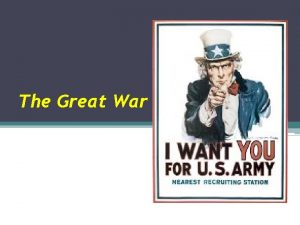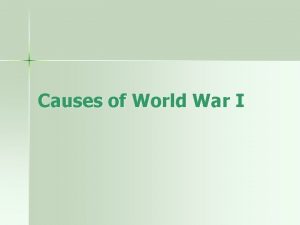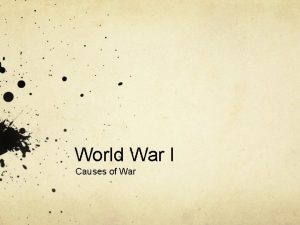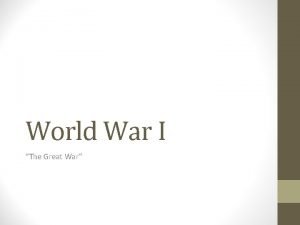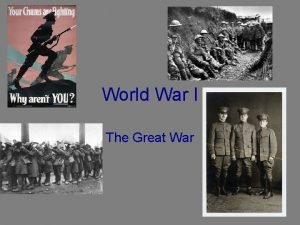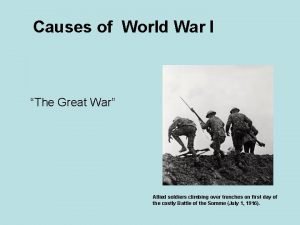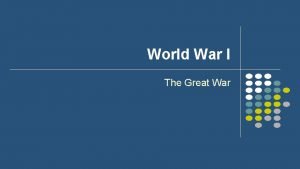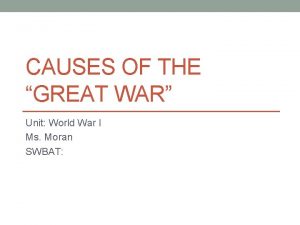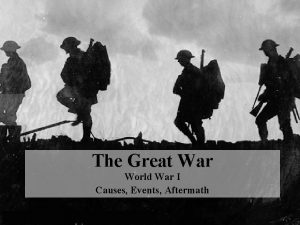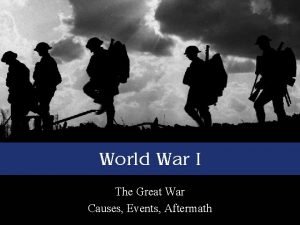World War I Causes of the Great War













- Slides: 13

World War I Causes of the Great War Class Notes

The Great War: In a Nutshell • The first war to include multiple countries • The first war to include countries from Europe, the Middle East, and Asia--drawn together by complex alliance system • The first “modern” war • Use of modern technology: first airplanes, first tanks, first gas attack • Most dead in a single battle • The first “European” war the U. S. fought in • Largest mobilization effort, to date

M. A. I. N. Causes of the War Video

Militarism • During the Industrial Revolution, many European nations greatly increased their ability to produce “stuff. ” • Countries such as Germany and France began applying their industrial production power to an arms race. • Militarism made countries feel patriotic, but also increased distrust among nations of Europe. • Guns- Use ‘em or Lose ‘em • Alfred Thayer Mahan- The Influence of Sea Power Upon History


Alliances • Countries seek to protect themselves through alliances • Bismark- Goal was to isolate France • Drikaiserbund- Three Emperor’s League. Germany, A-H, Russia • Triple Alliance- G, A-H, It • 1890 - Bismark forced to retire, Drikaiserbund breaks up • Russia and France team up • Germany now faces a 2 front war • 1907 - Triple Entente. France, Russia, GB, not binding, but at least stay out • GB pledges to protect Belgium’s neutrality

Alliances and the First World War: Triple Alliance, 1882 Then Bismarck allied with Italy and Austria-Hungary (the TRIPLE ALLIANCE, 1882). Together with his friendship with Russia, this kept Germany safe.

Alliances and the First World War: Germany encircled But when Kaiser Wilhelm became Emperor, he dumped the Russian alliance. He kept the Triple Alliance, but this did NOT solve the problem of Germany’s encirclement.

Alliances and the First World War: Franco-Russian Alliance, 1892 Instead, in 1892, Russia made an alliance with FRANCE. Although it was only a DEFENSIVE alliance, it was Germany’s worst nightmare!

Alliances and the First World War: Triple Entente, 1907 In 1907 Russia joined Britain and France to make the Triple Entente. So by 1914 Europe had divided into two massive superpower blocs. People thought this BALANCE OF POWER would keep the peace.

A World War • THE ALLIES • CENTRAL POWERS • • Germany Austria-Hungary Bulgaria Ottomon Empire • 23 million troops • • • • Australia Belgium Brazil Britain Canada China Costa Rica Cuba France Greece Guatemala Haiti Honduras India Italy Japan Liberia Montenegro New Zealand Nicaragua Panama Portugal Romania Russia San Marino Serbia Siam South Africa United States 42 million troops

Imperialism • After the Industrial Revolution, the European powersincluding Great Britain, Germany and France-needed new markets for their goods and new producers of raw materials. • They looked to Asia, Africa and the Middle East, lands which they considered their for the taking, and established colonial control. Including completely dominating the other nation. • Countries saw that Imperialism made them powerful. More colonies = stronger, better. • The countries of Europe competed for what little “unconquered” lands remained. These rivalries caused tension and mistrust among the nations of Europe. • Resulted in competition over territorial acquisition • Resulted in long-term aggression over border disputes, natural resources, and new markets – Examples: • France v. Germany over Alsace-Lorraine • Austria-Hungary v. Russia over Balkans • Video

Nationalism • Nationalism is patriotism gone wild. It is loving your country by hating on others. • 2 kinds – Rivalry between powers – Smaller groups want freedom • The belief that each country was culturally superior to any other countries • European governments fueled prejudice and mistrust against neighboring rival nations. • This mistrust of others and crazy patriotism lead to the countries teaming up, because “my enemy’s enemy is my friend. ” • Long term cultural hatred (the Russians hated the Germans, the Bosnians hated the Serbs, the Ottomans hated the Greeks, etc) • Resulted in a global effort to prove superiority – Evident in growth of military, the growth of industry, the acquisition of territories – Resulted in large scale international tension
